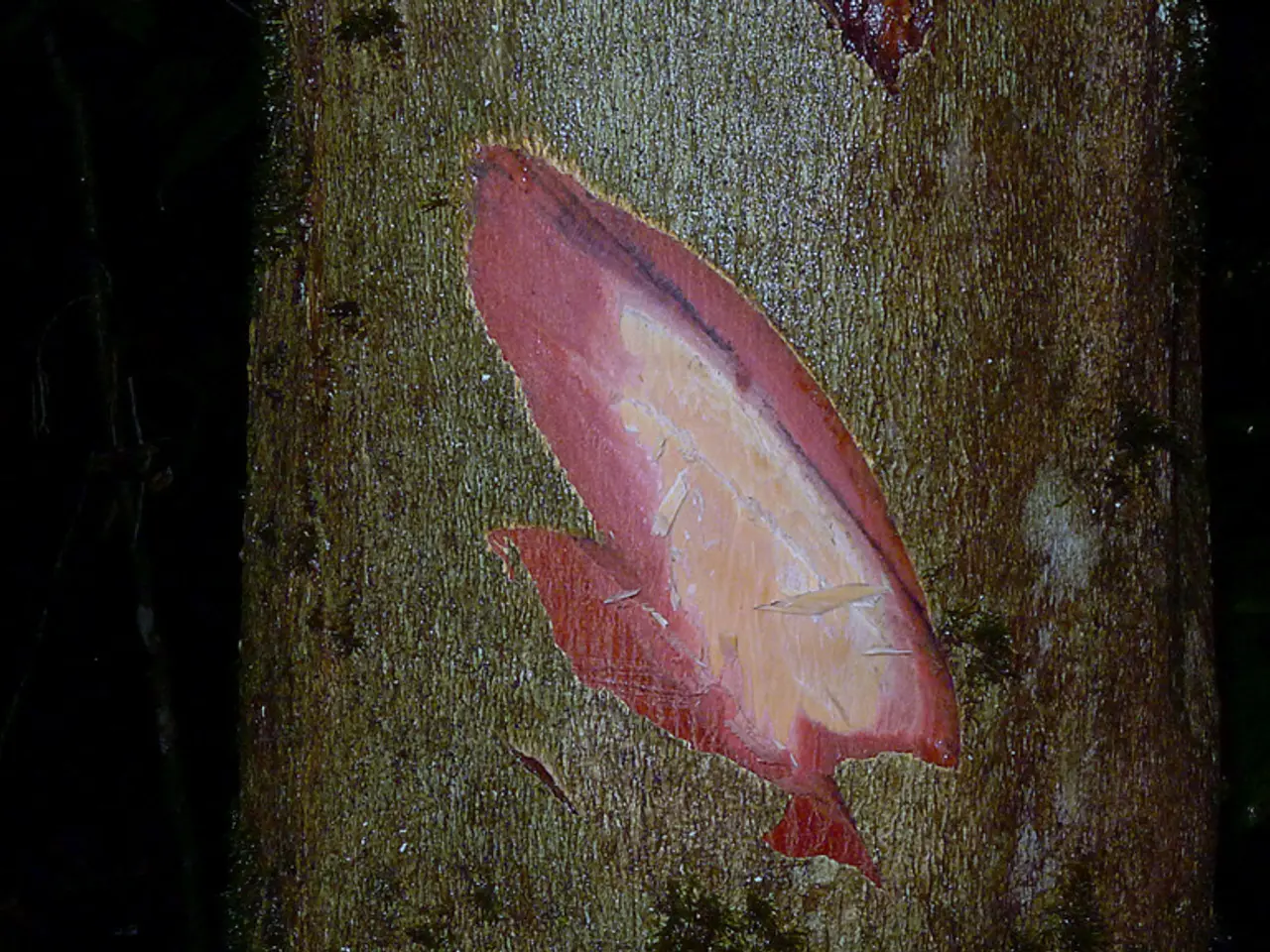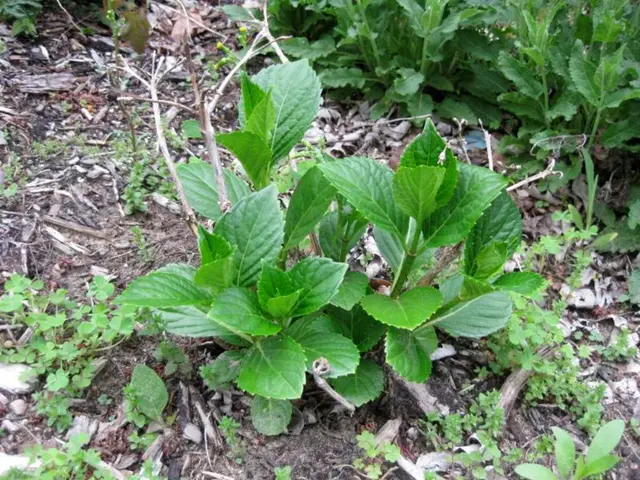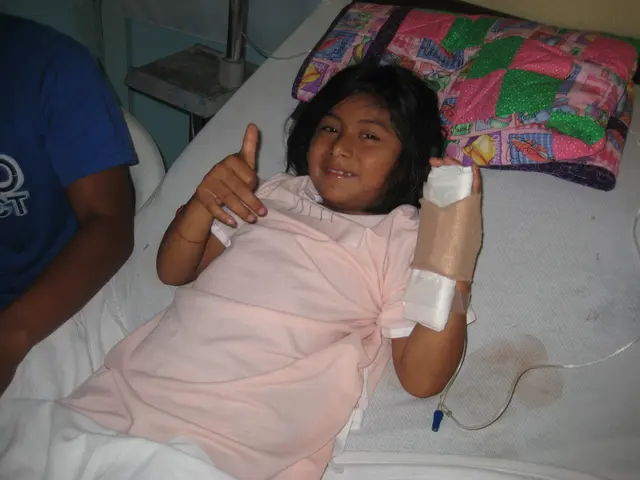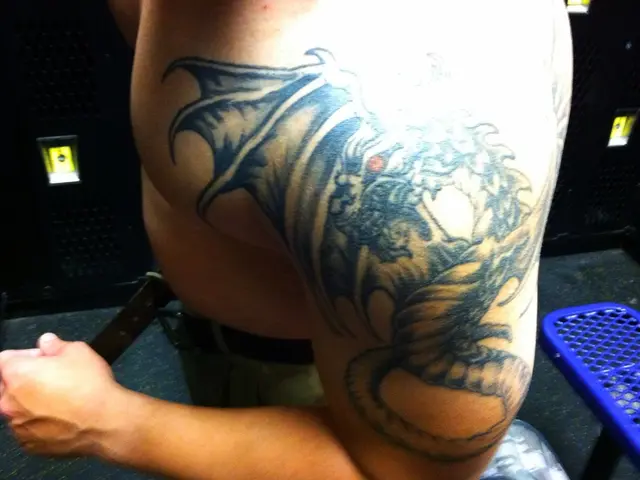Space-Cultivated Stem Cells Spark Interest among Doctors and Medical Researchers
The International Space Station (ISS) has become more than just a celestial laboratory for cool science experiments. It's also a groundbreaking platform for medical research, particularly in the field of stem cell studies.
Recent advancements in stem cell research on the ISS have been focusing on adult stem cells, such as mesenchymal stem cells, and the creation of organoids derived from reprogrammed stem cells. These organoids are 3D clusters of cells that mimic real organ structures, and the microgravity environment on the ISS may allow them to develop more complex features, like blood vessels, which are difficult to achieve on Earth due to gravity constraints.
The hope is that this research will lead to improved understanding and potential treatment options for diseases linked to aging and adult stem cell function, such as ALS, Parkinson’s, and cardiovascular conditions.
One of the key developments in this area is the work being done by the Allen Institute for Cell Science. They have sent frozen stem cells to the ISS to grow heart and brain organoids in space. The goal is to gain insights that could lead to new treatments for these age-related diseases.
NASA is also conducting research on the ISS, studying mesenchymal stem cells alongside bone-forming cells to investigate changes induced by microgravity that contribute to bone loss. This research is particularly relevant to both astronauts and millions of aging individuals on Earth who suffer from osteoporosis and other age-related bone diseases.
Furthermore, efforts are being made to produce stem cells in space and study engineered liver tissue, advancing regenerative medicine applications that may benefit age-related tissue degeneration. There are also attempts to bioprint implantable devices on the ISS meant to support nerve regrowth, which holds potential for treating traumatic nerve injuries that become more problematic with aging.
The microgravity environment in the ISS National Laboratory has been found to enhance the regenerative capacities of stem cells, making it a more natural environment similar to the human body. This addresses some of the obstacles in growing adult stem cells on Earth. The ISS lab's microgravity environment could also reveal mechanisms in adult stem cells that are undetectable under normal gravity.
Dr. Abba Zubair, M.D., Ph.D. from the Mayo Clinic has initiated three stem cell experiments to the ISS from his lab. The positive results from space-grown stem cells have given doctors and medical researchers confidence in their potential to treat age-related conditions such as cancer, neurodegenerative diseases, and stroke.
Since 2000, the ISS has hosted 280 astronauts from various countries. The ISS lab provides a permanent microgravity environment for experiments, making it an invaluable resource for medical research. Despite the challenges and expenses associated with growing adult stem cells on Earth, the ISS lab offers a unique environment for studying adult stem cells that cannot be replicated on Earth.
In summary, the current stem cell research on the ISS leverages microgravity to enhance the growth and complexity of adult stem cell-derived organoids and study cellular mechanisms of aging-related conditions like neurodegeneration, cardiovascular disease, bone loss, and nerve injury. These studies offer promising avenues to develop novel treatments that could benefit both long-duration space travelers and the aging population on Earth.
[1] Allen Institute for Cell Science Press Release [2] NASA Press Release [3] NASA Technical Reports Server [4] Nature Medicine [5] NASA Tech Briefs
- The Allen Institute for Cell Science is utilizing the microgravity environment on the International Space Station (ISS) to grow heart and brain organoids in space, with the aim of discovering insights that could lead to new treatments for age-related diseases.
- Stem cell research on the ISS, such as NASA's study on mesenchymal stem cells and bone-forming cells, is investigating changes induced by microgravity that contribute to bone loss, which is particularly relevant to both astronauts and aging individuals on Earth dealing with osteoporosis and other related bone diseases.
- Efforts are being made to bioprint implantable devices on the ISS for nerve regrowth, and the ISS's microgravity environment could support these developments, potentially benefitting the aging population on Earth with traumatic nerve injuries that become more problematic with age.




